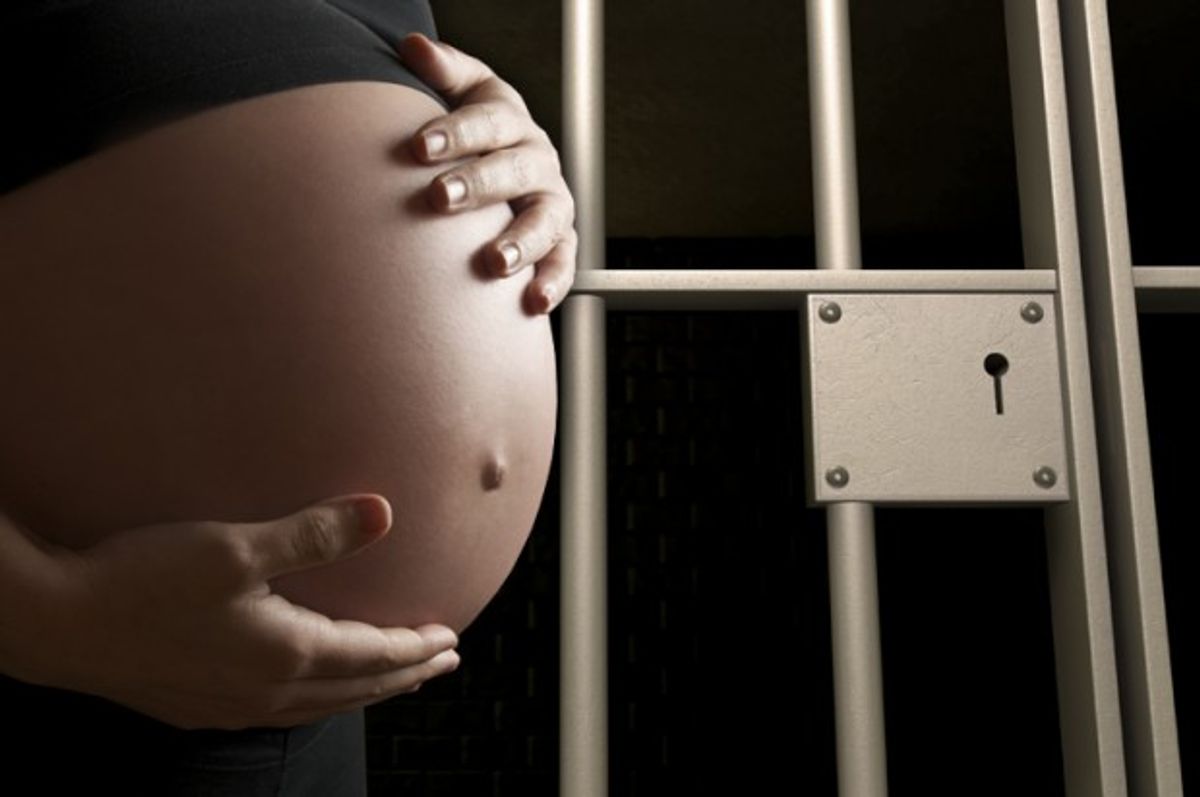North Carolina is currently considering a measure that would jail women who use drugs during their pregnancies “if her child is born addicted to or harmed by the narcotic drug.”
The measure is virtually identical to a Tennessee law passed in 2014, which Republican state Sen. Brent Jackson cited approvingly after introducing the measure:
Today, I am introducing a bill to discourage prenatal drug use in response to a concern brought forward by medical providers. Since Tennessee passed similar legislation, our emergency rooms in the western part of the state have experienced an influx of pregnant women with substance abuse issues.
This bill should serve as a deterrent to illegal substance abuse by pregnant women in North Carolina. In order to encourage women to make a good faith effort to get clean, this bill provides legal protection for women who are enrolled in a treatment program and remain enrolled throughout the course of their pregnancy.
What’s interesting here is that Jackson, whether he realizes it or not, used the failure of the Tennessee law as a way to justify the introduction of an identical policy. Tennessee enacted its pregnancy criminalization law in April 2014, which Jackson claims led to an increase in the number of Tennessee women seeking medical care in North Carolina, presumably to avoid incarceration in their home state.
But rather than view this as evidence that the policy does not prevent drug use as it drives women to seek help out of state, Jackson uses it as a reason to adopt the policy in North Carolina. It's a baffling bit of logic.
There are a few things that are important to know about drug use during pregnancy, as well as treatment for pregnant women, if you’re going to understand why laws threatening criminal penalties are so dangerous.
Addiction is a medical -- not criminal -- issue. This is why doctors, addiction specialists and major medical associations have consistently denounced policies that threaten criminal penalties instead of expanding access to care. The American Congress of Obstetricians and Gynecologists has said these laws deter women from seeking prenatal care and are “contrary to the welfare of the mother and fetus.”
The White House has also come out against such policies. "It doesn’t seem to serve anyone well to attach criminal penalties to people who have addiction disorders, particularly pregnant women," Michael Botticelli, director of the White House Office of National Drug Control Policy, said last year in an interview.
Advocates in the state have also warned the policy will have a chilling effect. “It’s going to discourage women from seeking out prenatal care,” Lynn Shoemaker of Women AdvaNCe, a women’s organization in North Carolina, told Public News Service. “If women are actually criminalized for this and they’re sitting in jail, how is that helpful? How are they going to provide for their families, for their children?”
And contrary to the language of the measure (and the law in Tennessee), babies are not “born addicted” as a result of prenatal exposure to drugs. As Dr. Hendree Jones, Ph.D., a professor with the Department of Obstetrics and Gynecology at the University of North Carolina School of Medicine and an expert on neonatal abstinence syndrome, told me last year, the language of addiction is “not appropriate” when talking about newborns.
“Babies cannot -- by definition of addiction -- be addicted,” she explained. “They have not had a life course long enough where they would be using a substance in an uncontrollable way. So when babies are born, they can be born dependent on a substance. So they can be born dependent on opiates, but certainly not addicted to opiates.”
Instead, some babies have what’s called neonatal abstinence syndrome, a treatable condition in which they may experience central nervous system and gastrointestinal problems. The course of treatment involves medication to stabilize the nervous and gastrointestinal systems and regularly assessing the baby’s condition. It can be an ugly condition, but political scare tactics demonizing mothers do nothing to help babies get healthier. Hospitals with staff trained and resourced to identify and treat neonatal abstinence syndrome do that.
Treating neonatal abstinence syndrome requires dedicating additional resources, and raising awareness -- not stigma -- about the condition. But like the Tennessee law before it, the North Carolina measure does not connect the issue of the availability of treatment to the threat of incarceration.
The measure also doesn't offer any additional funding for treatment programs for pregnant women, where the need is great and resources are often insufficient. Jackson’s bill would provide “legal protection” for women who “are enrolled in a treatment program and remain enrolled throughout the course of their pregnancy,” but such programs are often hard to access, particularly for low-income women.
In 2010, only 19 states had drug treatment programs tailored to the specific needs of pregnant women, and many facilities still do not provide childcare or other accommodations for a woman’s work and family needs. In 2014, North Carolina was ranked 40th in the country for health coverage for women.
Jackson’s bill, no matter its intent, prioritizes criminal penalties over the actual health and wellbeing of the women in his state. But when I asked Jones, the expert on neonatal abstinence syndrome and a professor in North Carolina, what kinds of policies she believes would most help pregnant women, she she took a radically different approach than Jackson:
Rather than imposing a law, what I’d really like to see is the focus of resources on expanding treatment, to making treatment better quality and ensuring that women truly do have access to treatment. I think there should be more resources that are given to prevention of substance use disorders. It’s not just enough to say once in fourth grade, “Here you go, drugs are bad.” We really need to be looking at prevention like we look at sunscreen, so that every time you go out, you put it on.

Shares